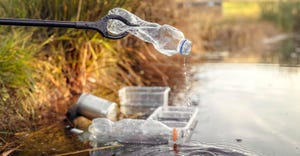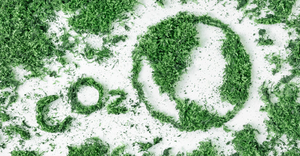iWrc Creates Opportunity for Waste Workers in Brazil
The initiative aims to create job security, safety, and prosperity for informal waste workers.
April 20, 2021

SAO PAULO-- Recycling centers often lack the proper resources to protect their employees from hazardous and strenuous working conditions. iWrc collaborates with these cooperatives to improve the health, safety, and financial stability of employees. The initiative trains workers at the cooperatives in proper practices and protocol. Elizabete Rocha, president of Futura Cooperative, says that in the past workers "feared nothing. We had no PPE. We had no schedule to stop working." Since taking part in the training programs, things have changed. "They taught me to respect myself and the others, manage and value our work."
The benefit doesn't stop at daily safety. These standards also certify their waste for export to corporations for reintroduction into the supply chain. With appropriate work conditions, they can sell their sorted waste on the global market. This model provides increased income and wealth to waste workers.
The Value of Social Responsibility
iWrc utilizes a universally recognized measurement tool, the Social Fingerprint system from SAI International. The system measures the social performance of businesses and partners on all rungs of the global supply chain. In transnational corporations, this fingerprint ensures that materials are sourced in a socially responsible way.
iWrc corporate partners purchase materials and support best practices for recycling facilities in Brazil and Mexico. These partnerships include Johnson & Johnson, Kimberly Clark, and HP. Mike Hsu, CEO of Kimberly Clark, explains their ambitious goals to be met by 2030, "the next 10 years will be decisive. We know our consumers are concerned about the impact our products have on the environment, and we are concerned too. That's why we will focus on the areas where we can make the biggest difference – climate, forests, water and plastics."
Partnership with iWrc reduces corporate environmental impact and strengthens their global social impact. By reintroducing recycled materials through a circular economy and supporting safe working conditions for waste workers in their respective countries, companies can meet sustainability goals.
In March 2021, iWrc cooperatives collected, sorted, and processed over 1000 metric tons of combined waste. The initiative drastically increases the number of cooperative members, creating opportunities while cleaning up surrounding communities.
Sustainability through a Circular Economy
The regenerative design of a circular economy gives waste new life. Recycling often refers to plastics and aluminum, leaving many other materials underutilized. iWrc's partner cooperatives also reintroduce e-waste, PET, and other resources back into the value chain. These initiatives restore the worth of materials typically considered "low-value."
To advance the progress and efforts of iWrc's program, the consortium will continue to forge new partnerships with cooperatives globally. These initiatives create jobs and wealth while reducing waste in surrounding communities.
To learn more about iWrc's programs and partnerships, visit https://iwrc.world/
About iWrc
Our partner facilities offer safe conditions and responsible operations. We work with waste recycling cooperatives to establish best practices. Then, we connect cooperatives to brands. The iWrc platform allows global brands to purchase bulk recycled materials. This sorted waste returns to the supply chain. Companies can buy the product with confidence. The iWrc Seal represents fair labor practices.
About iWrc Global
iWrc stands for "Inclusive Waste Recycling Consortium." The first word in our name is "inclusive." iWrc is the leader in fair labor practices. We seek to advance the health and financial status of waste pickers. Here, "inclusive" means safe conditions and responsible operations. We work with waste recycling cooperatives to establish best practices. Our training helps empower employees. A "consortium" is an association between several companies. We connect cooperatives to brands. Our platform allows global brands to purchase recycled materials.
The iWrc online marketplace sells sorted bulk material. Recycled waste returns to the supply chain. Companies purchase the product with confidence. The iWrc Seal represents fair labor practices. People are our priority. Thus, we strive for optimal conditions at the recycling facilities.
SAI's Social Fingerprint® program measures social responsibility. They monitor, measure, and help to improve working conditions. iWrc partners with SAI to create a social impact collaboration. Together, we envision a world where workers, businesses, and communities thrive.
You May Also Like


